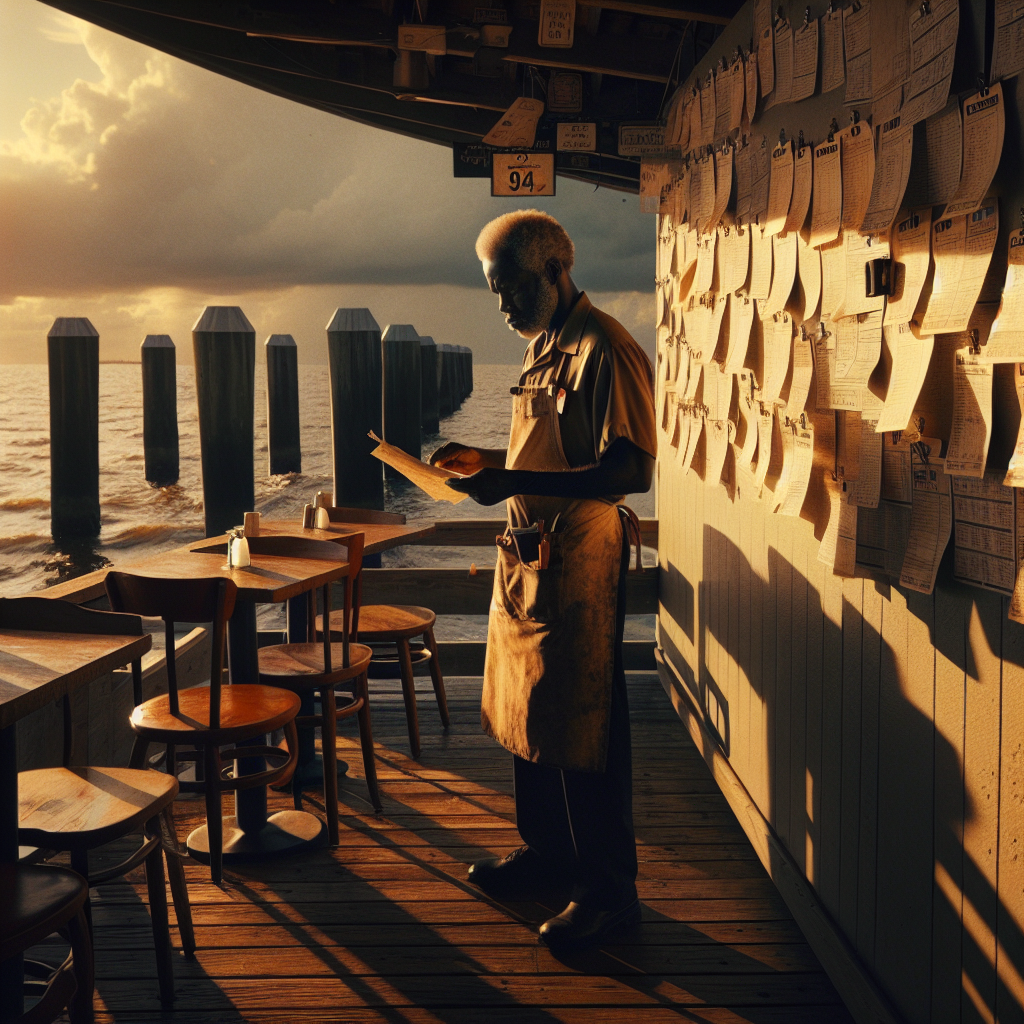AI Turns Tide Data Into Revenue for Gulfport Restaurants

Title: From Guesswork to Precision: How Gulfport Waterfront Restaurants Are Using AI-Driven Tide and Weather Data to Maximize Outdoor Revenue
Gulfport’s shoreline views are an undeniable draw, but they come with a challenge every operator knows too well: unpredictable conditions can empty a patio in minutes. According to NOAA, Tampa Bay’s tidal range can fluctuate by more than four feet in a single day, and summer thunderstorms develop with as little as 30 minutes’ notice.¹ For restaurants that earn up to half of their nightly cover count on the deck, those variables translate into last-minute cancellations, service disruption, and stranded labor costs.
Recent advances in applied AI—specifically the fusion of hyper-local weather feeds, live tide tables, and reservation data—are changing that equation. Early adopters in Gulfport are already converting volatility into predictable margin.
Why Traditional Forecasts Fall Short
Standard weather apps offer hour-by-hour predictions, but they are designed for consumers, not business operations. They seldom account for:
• Microclimates created by Tampa Bay’s sea-breeze front
• The 60- to 90-minute lag between posted sunset and usable twilight for waterfront dining
• Table-by-table exposure differences on multi-level decks
What operators need is not another generalized forecast, but actionable intelligence delivered in time to adjust staffing, inventory, and reservation policies.
How an AI Platform Closes the Gap
A purpose-built engine ingests three data streams every 15 minutes:
- NOAA tide and surf-height sensors stationed at the Sunshine Skyway.
- High-resolution Doppler radar plus lightning-strike telemetry.
- Real-time reservation and table-status data from the restaurant’s POS.
Machine-learning models translate those feeds into a simple output for managers: a rolling, six-hour Seating Confidence Index (SCI) for each outdoor zone. If the SCI for the lower deck drops below 70%, the reservation system automatically:
• Holds new patio bookings.
• Offers existing parties an indoor alternative via SMS.
• Flags the shift lead to re-stage staffing.
Gulfport Case in Point: SeaGlass Bistro
SeaGlass Bistro, a 110-seat concept steps from the Gulfport Casino Pier, piloted EarlyBird’s Gulfport restaurant tide forecast software during peak season. After 90 days, the numbers were hard to ignore:
• 18% reduction in weather-related cancellations²
• 35% faster table-reassignment time when storms rolled in³
• $6,700 incremental revenue captured from reclaimed outdoor covers
Just as important, the host team reported a measurable drop in guest frustration because patrons received proactive text updates instead of last-minute apologies.
Financial Impact You Can Model
For a typical waterfront operation doing 250 patio covers on a busy night, each avoided cancellation preserves roughly $28 in contribution margin (average check minus variable cost). Eliminate 20 cancellations a week and the system pays for itself within one summer.
Getting Started: A Three-Step Roadmap
-
Data Audit
Verify you have clean reservation timestamps, section maps, and basic menu cost data. EarlyBird integrates with all major POS vendors used in Tampa Bay. -
Pilot and Calibrate
Run the AI analytics for waterfront restaurant operations in shadow mode for two weeks. Compare the Seating Confidence Index against actual weather outcomes to fine-tune the risk threshold. -
Automate Policy
Once accuracy exceeds 85%, enable automatic reservation gating and SMS guest prompts. Managers retain override authority, but most rely on the model after the first month.
What About Staff and Guest Buy-In?
Transparency is key. Share the SCI dashboard during pre-shift. When servers see the system correctly predict an incoming squall, they become advocates. Guests appreciate the option to re-schedule rather than arrive to a soaked terrace—an essential step toward outdoor dining cancellation reduction in Tampa Bay’s volatile climate.
Why Act Now
AI seating optimization Tampa Bay restaurants once considered “nice to have” is fast becoming standard practice. Operators who embed data-driven decisions into daily workflow will safeguard revenue, protect labor budgets, and deliver a smoother guest experience.
Ready to unlock the power of AI for your business? Contact EarlyBird AI today for a free consultation and discover how our tailored solutions can drive growth and efficiency for your Tampa Bay enterprise.
Footnotes
¹ NOAA Tides & Currents Station #8726520, May–Aug 2023 data set.
² OpenTable cancellation benchmark vs. EarlyBird pilot log, June–Aug 2023.
³ Internal EarlyBird analytics report, SeaGlass Bistro Pilot, 2023.